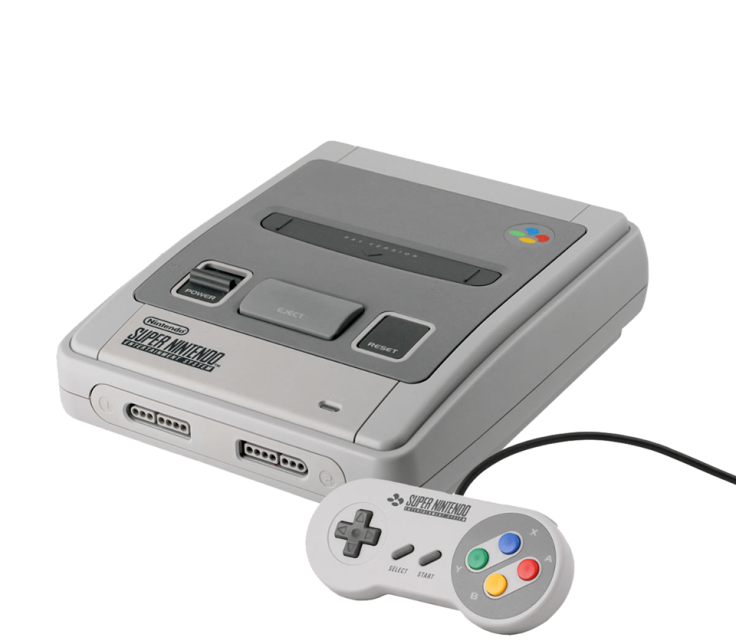SNES Classic Edition: Nintendo files first trademark necessary for the release of another retro classic

In the last stretch of 2016, Nintendo released the NES Classic Edition, which was met with plenty of eagerness, excitement and frustration as thousands of individuals were unable to purchase a unit. However, this loss might be soon be mitigated as the company is expected to release the SNES Classic Edition.
A Twitter post by Trademark Bot has confirmed that Nintendo registered a Japanese trademark for the image of a Super Famicom controller. Several news outlets have taken this news to mean that the Super Nintendo Entertainment System is making a comeback, much like the earlier Nintendo Entertainment System has. As WWG has reported, following up the NES Classic Edition with the SNES Classic Edition is only logical.
[商願2016-136902]
— 商標速報bot [支援募集中] (@trademark_bot) December 24, 2016
商標:[画像] /
出願人:任天堂株式会社 /
出願日:2016年12月5日 /
区分:9(家庭用テレビゲーム機用プログラムほか),28(家庭用テレビゲーム機ほか) pic.twitter.com/q1V4t338Ny
If this proves to be true, it could mean that Nintendo will no longer release NES Classic Edition units and will instead focus on the SNES Classic Edition. As PC Mag noted, the gaming company has definitely lost a significant chunk of profit from the limited stock of the NES Mini. The company is likely not to make that same mistake a second time around.
Everything is just speculation at this point, and Nintendo is not expected to make an official announcement anytime soon. The Nintendo Switch is still scheduled for release on March 2017, and a surprise entry from the SNES Classic Edition might deter consumer attention. But an older generation of gamers will undoubtedly welcome back several titles such as “Super Metroid,” “Super Castlevania IV,” “The Legend Of Zelda: A Link To The Past” and “Super Mario World 2: Yoshi’s Island.”
The Super Nintendo Entertainment System was first released in 1990. Japan and South Korea were the first markets that got their hands on the console, with North America and Europe following shortly after. It was a 16-bit home video game console that was discontinued in 2003. The SNES Classic Edition would definitely fill the nostalgia-sized hole left by the limited stocks of the NES Classic Edition.





















